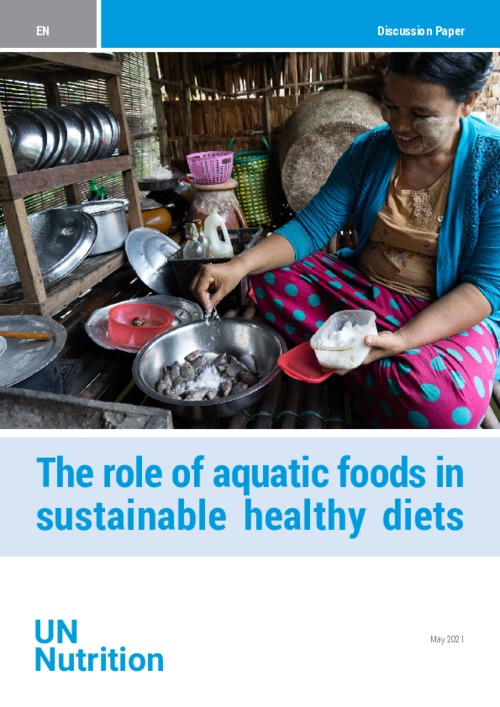The Role of Aquatic Foods in Sustainable Healthy Diets

Diverse aquatic foods – including animals, plants and microorganisms farmed in and harvested from water, as well as cell and plant-based foods emerging from new food technologies – have an essential role in ensuring food and nutrition security, while providing equitable livelihood benefits to people around the world. Aquatic foods from our oceans and inland water bodies are rich sources of micronutrients: iron, zinc, calcium, iodine, vitamins A, B12, and D. They also provide essential fatty
acids that are necessary for brain growth, cognitive development, health and well-being. Aquatic foods also offer opportunities for greater ecosystem sustainability, as producing aquatic foods has a lower environmental cost compared to producing most terrestrial animal-source foods. Moreover, as many rural poor are engaged in small-scale fishing and aquaculture activities, these aquatic foods, especially small fish, may be the most culturally acceptable, accessible and affordable animal-source food available. The cost of a healthy diet remains unaffordable to many, and food and nutrition insecurity has been further exacerbated by the COVID-19 pandemic, highlighting the fragility of the global food system. Aquatic foods hold the potential for a major contribution to global food system transformation, transitioning towards diets that are socially, economically and environmentally sustainable.
The UN Nutrition discussion paper (2021) presents evidence to inform and steer policy, investments and research to leverage on the vast potential of aquatic foods in delivering sustainable healthy diets and in meeting the Sustainable Development Goals (SDGs). In recognizing the role of aquatic foods in transforming food systems, this policy brief provides recommendations for policy makers and other stakeholders to ensure that aquatic foods become part of sustainable healthy diets and food systems.
Permalink
Date Available
Type
Publisher
Copyright
Copyrighted; Non-commercial educational use only
Language